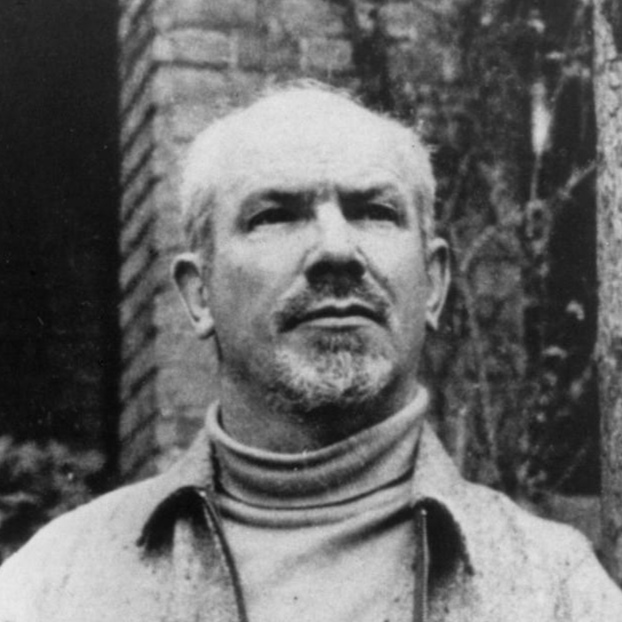White rice has no nutritional value. The husk, which contains the vitamins and protein, has been entirely stripped, leaving only the soft kernel inside which has almost no nutrients. Thus minerals and vitamins are added back to white rice during the packaging process to make it somewhat healthy.
Opt for parboiled rice (closest to white once cooked) which is also similarly priced to white, or go wild -- literally -- and get what is called wild rice, which is just how rice should be. I'm also partial to black rice which can be quite more expensive for rice, but it's really fragrant and tasty (but be careful with the water, it stains easily).
All of these have a higher protein content than white rice, lower calories, and the nutrients didn't have to get added back in, they come from the rice itself.
I'll be brutally honest, i eat a lot of rice and it's by far my favorite base for dishes, but nutritional value is not what i look for in rice. I've eaten all sorts of rice, and while i have nothing against wild rice, brown rice or parboiled rice - in fact I liked them all just fine whenever i had them and i believe everyone should try them at least once - it's still white jasmine and basmati rice that tastes the best to me. Probably the one i enjoy least is the short grain variant used for risotto. Ultimately it always depends on the recipe. Certain types of rice fit better to certain recipes than others.
Yeah that's fine, I'm not selling black rice lol, but for athletes and other fitness hobbyists we can definitely benefit from more nutritional rice than white, which is why I posted in the physical education community 😁
That's a good point, some people can certainly stand to benefit from more nutritional rice variants.
Same, for me basmati for biryani, pilaf type dishes. Jasmine for everyday and glutinous rice for special days.
Whole grain rice also has higher arsenic content, which can be a problem if you're pregnant or eating a lot of rice. So, it's best to avoid eating whole grain rice for every meal. Other grains don't have this issue. Wheat, buckwheat, oats, corn (or hominy), amaranth, and quinoa are all good choices for whole grains depending on your situation, although it can be healthier to buy organic for some of these grains to avoid exposure to glyphosate which can disrupt your gut microbiome. As always it's best to eat a wide variety of foods.
Personally I think white rice is still a good choice as long as you stick to rice grown outside of the US. Rice grown in California can also be OK in terms of arsenic content.
It's generally always a good choice to avoid food grown in the US anyway
That's true, but it's not always possible, especially if you live there like me.
They'll work, but they're not great. When I used to do crossfit everyone told me to eat rice before a class but lentils worked much better. But different people will react differently to them, "bare" carbs like white flour (which is also reinforced, it goes through the same process as rice) and white rice leave me still feeling hungry most of the time
Good lookin out, homie. I actually didn't know white rice was so stripped down-- I've been getting it bc that's just how I was raised, and 'cause of my mom, I know just how much can be done with a rice bowl when funds are low.
One thing to watch out for on a budget is cooking time. White basmati cooks in just over 10 mins. The wholegrain/brown rice that I sometimes get takes 25+ mins. That could more double the cooking portion of the energy bill for someone who's mainly eating rice. Still, it can be cooked and then cooled immediately under cold water, drained, and stored in the fridge, then heated quickly for up to a few days later to save of the energy intensive part.
I think that the emergy costs for cooking brown rice are negligible given that you should be bringing your rice to a simmer and then immediately dropping the heat down to the lowest setting. With an electric rice cooker this is even more efficient.
In my experience (maybe it's just my cooker) rice cookers only like white rice. Other types burn a layer on the bottom which makes it a chore to clean and you get less rice. I think it has to do with how rice cookers work, shutting off when they don't detect any more water, but non-white rice taking longer to absorb water and so being exposed to the heating element longer without the protection the water provides. I cook my non-white rice in a pan now in the same way a rice cooker would do it.
Wild rice is in fact not related to rice at all! It does have a delicious nutty flavor however. Best paired with mushrooms imo.
I have been tempted to try lacto fermenting rice for a while now. Perhaps I will try a batch soon. I have already had pretty great success with all the beans. lol.
sounds novel, tell me how it turns out if you end up trying it out
There is no good rice or bad rice nor is there any healthy or unhealthy food, this is a very old and rather vague concept. If a person is focused on good health then a good and balanced diet should be vouched for instead. If something is edible and has no toxic effect then it is food, the nutritional requirements chart after that needs to be analyzed according to one's physical needs and planned. You can consume 'junk food' as well but that requires you to balance your overall diet by making up for that extra fat you consumed, that is if you are actually focused on good health.
Like you said, if White Rice has more Carbohydrates while other Rice types have less Carbohydrates and more proteins then choose any but balance the diet accordingly. So for example if you choose White Rice then make up for the lost protein by eating foods containing protein, likewise if you choose wild rice then make up for the lost carbohydrates by eating other foods. And of course then there are other Nutrients as well.
The entire objective is to obtain nutrients, however way you do.
I have to disagree with your assessment comrade, if white rice were not reinforced (thankfully this is done by using the ground up husk of the rice grain they just broke up) and you ate it everyday, you would certainly have vitamin deficiencies, potentially lethally so. Is this considered healthy? It's the same problem as eating lean meat, it can be lethal if you rely on it too much and people should know this is a risk. Thankfully I'm not aware of any non-reinforced rice or white flour, but I have to wonder what exactly is lost during this reinforcing process. The macros are there somewhat, I don't think all the micros can be.
Rice is a daily staple food in many parts of the world; I agree that people should diversify their diet, but this is easier said than done! (And I'm definitely not the most diverse eater). Replacing white rice with more whole rice, and doing the same with flour, is a simple switch that is more healthy.
Healthy like you said is a vague concept, but there are ways to trudge through that. Trans fats for example are unequivocally unhealthy and their consumption should be avoided entirely. Healthy encompasses more than something being non-toxic, I take a very analytical approach and essentially place a healthy diet as something that hits your recommended nutrient quotas.
So for example,
You can consume ‘junk food’ as well but that requires you to balance your overall diet by making up for that extra fat you consumed
Yes, but it's not solely the fat. Junk food uses the trifecta of sugar, salt and fat to become pleasing and potentially addictive. 5g of salt a day is the maximum recommended amount, but most people consume more than that -- a Whopper at Burger King contains 9 grams of salt. It's also the calories and the feeling of fullness; many people (it doesn't seem to affect everyone) report still feeling hungry after eating fast food or junk food which encourages them to eat something more. The whopper I mentioned contains 678 calories already (just the simplest whopper with no cheese), where most people need ~2k every day, which is honestly not so bad, I expected worse lol (but of course people usually add cheese and extra patties in it).
likewise if you choose wild rice then make up for the lost carbohydrates by eating other foods
Reducing your carb intake is actually healthy, as high-carb diets are a driver of type 2 diabetes. Fibres (a type of carbs) are also very important, and white rice has almost none whereas parboiled rice has 4 times the contents.
I agree with and am aware of many things you wrote.
I have to disagree with your assessment comrade, if white rice were not reinforced (thankfully this is done by using the ground up husk of the rice grain they just broke up) and you ate it everyday, you would certainly have vitamin deficiencies, potentially lethally so. Is this considered healthy? It's the same problem as eating lean meat, it can be lethal if you rely on it too much and people should know this is a risk.
Yes, that is why I said a Balanced diet should be vouched for. Adding more, a well researched and analyzed balanced diet that, as I said, is according to the physical requirements of the person.
As someone who lives in India, the society here is dominated by Brahmanvadi culture and they force highly carbohydrate rich diets on their people, this leads to malnutrition if other nutrients are not supplied in case of most of the lower class and caste families and fattening in case of more well off families. My family comes in the second group and I have been trying to combat this error in our lifestyle however my parents are very resilient to that change towards a more scientific approach. They simply do not look at food through a scientific lens which is implied considering they are religious.
Rice is a daily staple food in many parts of the world; I agree that people should diversify their diet, but this is easier said than done! (And I'm definitely not the most diverse eater). Replacing white rice with more whole rice, and doing the same with flour, is a simple switch that is more healthy.
Well yes, there are definitely financial and distributory constraints. Taking India as an example where 80 Crore people out of 130 Crore are food insecure and rely on the government to procure grains, only grains. Their diets are quite restrictive and it is evident in their physique. I was speaking more or less with the assumption that the reader can afford to be able to make necessary changes to their diet. Considering they are on lemmy afterall.
Healthy encompasses more than something being non-toxic, I take a very analytical approach and essentially place a healthy diet as something that hits your recommended nutrient quotas.
Yes, that is what a balanced diet is.
Junk food uses the trifecta of sugar, salt and fat to become pleasing and potentially addictive. 5g of salt a day is the maximum recommended amount, but most people consume more than that -- a Whopper at Burger King contains 9 grams of salt. It's also the calories and the feeling of fullness; many people (it doesn't seem to affect everyone) report still feeling hungry after eating fast food or junk food which encourages them to eat something more. The whopper I mentioned contains 678 calories already (just the simplest whopper with no cheese), where most people need ~2k every day
Yes, to maximize their profits, Food Corporations use these methods. The consumption can still be limited and neutralized by exercise of course. Of course it is not recommended to introduce regular consumption of Fast Food to diet but that one occasional treat won't do much harm. You only have one life afterall.
So for example, I have cut out all added sugar in my food and substituted them with Stevia or Sucralose only when necessary, usually milk or Coffee. I also try to self serve so that I take only as much as I require. Because as a student, I really do not need too many calories.
Reducing your carb intake is actually healthy, as high-carb diets are a driver of type 2 diabetes. Fibres (a type of carbs) are also very important, and white rice has almost none whereas parboiled rice has 4 times the contents.
I am wary, yes.
i've become the goddess of cooking white rice but for some reason every time i cook brown it comes out either goopy or burnt
White rice has no nutritional value.
I agree that, overall, the average person would benefit from substituting white rice for brown rice in their diets, or even from simply adding brown rice to their diet. But to state that white rice has no nutritional value, as if it was empty calories like alcohol, is a flat out lie. White rice is still one of the best sources of carbohydrates that you can get, and this has been known about for ages.
White rice is acts like "empty" carbs on many because they're just pure sugar (albeit in carbohydrates form, a long chain of glucose) without the important fibres. Alcohol might be an apt comparison if we look at calories alone, it will indeed sustain you in terms of energy, but not much else. you would die if you drank only alcohol, even if somehow the ethanol inside didn't affect you whatsoever. There's just no nutrients in it aside from the calorie-heavy macros. White rice is a refined carb by definition.
It hasn't been known for ages as white rice only became popular after WW2 and was unenriched at first, giving millions of people in Asia vitamin B1 deficiency. It was only after that that manufacturers realized what they'd been doing and added the vitamins and other micros back to rice.
So in terms of enriched white rice... you kinda have to trust the manufacturers are enriching their rice properly, preferably with the ground husk of the rice they just destroyed.
The removal of the bran from rice does indeed come with the loss of certain nutrients, but it is still not purely devoid of them as you imply, and again, not at all comparable to alcohol. White rice still comes with selenium, manganese and niacin [1], which by definition would not make white rice empty calories. Of course you will have deficiencies if your diet is formed mostly of white rice, and that is why it is expected from everyone to have half a brain and make rice a component of a varied diet; brown rice does not escape from this fact either. Keep in mind in this thread we are addressing people in the first world with a wide accessibility to varied foods, and not empoverished third world farmers.
- Fukagawa, N. K., & Ziska, L. H. (2019). Rice: Importance for Global Nutrition. Journal of nutritional science and vitaminology, 65(Supplement), S2–S3.













